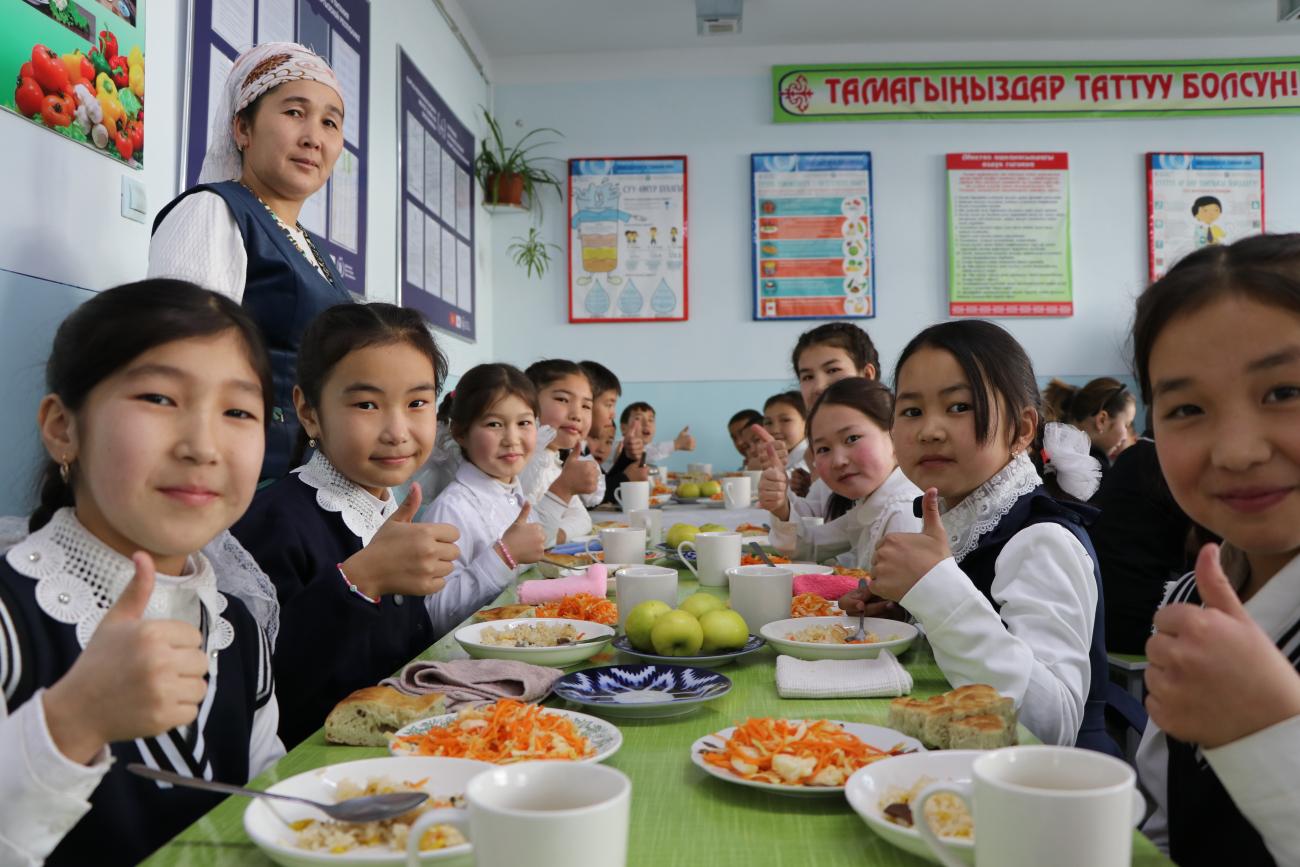In 2023, the Amirkulov school, situated in the remote mountainous Kara-Kulja district, launched the school meals programme, providing hot and nutritious food.
Micronutrient deficiencies pose a significant challenge in the Kyrgyz Republic, affecting 38 percent of children and 36 percent of women of reproductive age with anemia. The escalating rates of overweight and obesity, especially among schoolchildren, emphesize the critical need for interventions in human capital development during the initial 8,000 days of life. Recognizing the impact of well-designed school menus on enhancing dietary diversity and nutrient intake for vulnerable schoolchildren, WFP remains dedicated to optimizing the national school meals program.
In 2023, the Amirkulov school, situated in the remote mountainous Kara-Kulja district, launched the school meals programme, providing hot and nutritious food to 156 primary school children. “Before the launch of the programme at our school, we used to provide only bun and tea to our children. But now we have different types of modern kitchen equipment, allowing us to cook and bake fresh meals every day. WFP also conducted training sessions for cooks, where we learned the technology of cooking diverse meals and received information about hygiene standards and requirements in the canteen”, shares Ibraimova Manzuura, a cook with over 40 years of experience.
With the support of WFP and its partners, the simple 'bun and tea' menu provided to primary schoolchildren by the Government has been upgraded to diverse and nutritious hot meals in over 75 percent of schools nationwide, meeting the energy and nutrition needs of primary schoolchildren. Additionally, through advocacy efforts by WFP and other stakeholders, the Government has doubled the allocated budget for school meals. "Since the initiation of the programme at our school, we have observed a noticeable improvement in the concentration levels of the students during classes. The provision of school meals not only contributes to a healthy learning environment but also enhances the overall performance of the children”, notes Raisa Kaipkulova, the school director.
The School Meals Programme serves as a social protection measure for children from vulnerable families. It ensures that children facing food insecurity at home during challenging times receive nutritious meals at schools. The provision of healthy and diverse school meals plays a crucial role in preventing malnutrition and non-communicable diseases, promoting the overall health of the younger generation. This approach not only addresses immediate nutritional needs but also establishes a foundation for the long-term health and well-being of the children. In 2023, WFP launched nutritious meals in 33 schools, providing 190 metric tons of fortified wheat flour and trained 148 cooks and 157 stakeholders involved in school meals trained on organising hot meals, as well as 923 parents attended 47 seminars on healthy eating and lifestyle.







